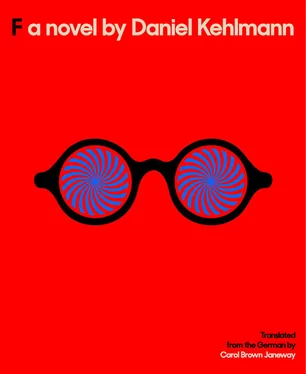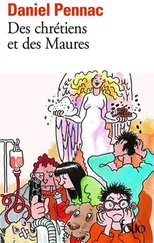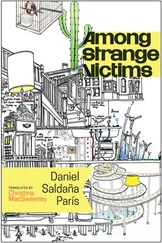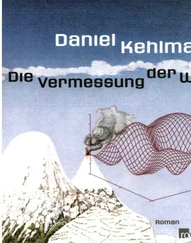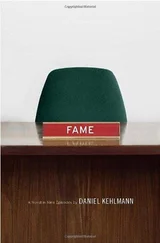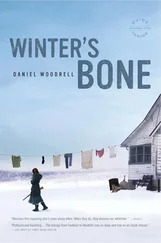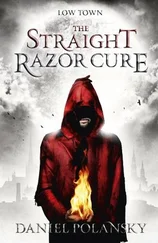When I came back, he was just describing the vernissage that his New York gallerist Warsinsky had recently organized for him: who had been there, what the critics had written, which pictures had sold and for how much. His mustache bobbed up and down, his lower lip trembled, and whenever he wanted to emphasize what he was saying, he knocked on the table.
To change the subject, I asked Arthur what he was working on right now. I knew he didn’t like the question, but it was better than listening to Heinrich.
“Probably going to be another detective novel. A classic locked-room mystery. For people who like riddles.”
“So is there a solution?”
“Of course! But nobody will find it. It’s very well hidden.”
“Is that the case with Family too?”
“No. That’s a story in which the solution really is that there’s no hidden solution. No explanation, and no meaning. That’s the whole point.”
“But that’s exactly what it’s not! Or rather it is, but only if you tell it in a way that makes it so. Every existence, if you look back on it, is made up of terror. Every life becomes a catastrophe if you summarize it in the way you do.”
“Because that’s the truth.”
“Not the whole truth. Not exclusively. Afternoons like today, places like this …” I gestured vaguely toward the window, the sea, our table, him, me, and Heinrich. “Everything passes, but that doesn’t mean that there’s no such thing as happiness, not by a long chalk. It’s a matter of moments, the good moments. They’re worth everything.”
Arthur was preparing a retort, but Heinrich got there first. He had a question, he said. What was meant by that piece of lunacy that he himself didn’t exist? That’s what the book said. It said in it that one didn’t exist. But he did. He was sitting right here!
“Undeniably,” said Arthur.
But seriously, this was absurd!
Heinrich’s outburst surprised me. I hadn’t known he’d read My Name Is No One , we’d never talked about it.
“If it’s absurd, there’s no point in getting upset about it,” said Arthur. “It’s only a book.”
“No excuses. Are you trying to say I don’t exist?”
“And if I did?”
“You can’t!”
Arthur looked at me. “Is this really necessary?”
“What are you talking about?”
With a circular gesture he pointed, exactly as I had already done, to the window, the sea, and the table, to himself, to me, to Heinrich.
For a few moments we were all silent. I heard Heinrich’s whistling breath and hoped that he hadn’t understood.
“A life doesn’t last long, Ivan. If you’re not careful, you squander it in stupidities.”
“You should know.”
“Yes, I should.”
“Leave my house!” said Heinrich.
“Do you paint his pictures too?” asked Arthur.
There was a long silence.
Then: “Leave my house,” Heinrich whispered.
Arthur laughed out loud. “It’s really unbelievable! You paint his pictures and nobody notices?”
“Out!” Heinrich got to his feet. “Out!” His voice shook, but when he was determined, it still had both strength and authority. He pointed at the door. “Out!”
As I accompanied my father to the hall, I was searching for some suitable remark, some sentence I could utter. “When will I see you again?” I asked finally.
“Soon.” It didn’t sound very convincing. He laid his hand on my shoulder, and a moment later he was gone.
I take off my overalls and wash my hands. The water runs bright and clear, collecting a swirl of colors as it falls. I feel a trace of sadness, a trace of pride, a trace of concern, as I always do when I finish a painting. But what could happen? Whenever it’s a question of the authenticity of a Eulenboeck, there’s one person who has the last word, and that person is the chairman of the Eulenboeck Trust, the sole heir of the artist, namely, me.
The title of this picture has been listed among his works for years: Holiday Snap No. 9 . I mentioned it already in an essay at the end of the nineties, and since five years ago there’s been a dossier in the archives of the National Gallery detailing the provenance of a painting depicting a French marketplace with a Niki de Saint Phalle sculpture. Archives take security precautions against people who want to steal things, but there’s nobody to stop someone smuggling something in. In another six months John Warsinsky’s gallery will offer Holiday Snap No. 9 for sale, but not before the chairman of the Eulenboeck Trust has alerted the most important collectors to it. They will all study the dossier to check the provenance, then the Eulenboeck Trust will be asked to make a statement as to its authenticity. Everyone knows the chairman of the Trust is also the seller, but this doesn’t bother anyone, it’s part of the game, and indeed who would be bothered by it anyway: nobody’s losing. After a thorough check, the Trust will give the painting its seal of authenticity — on the one hand an account of its impeccable provenance, as it passed directly from Eulenboeck to his heir, and on the other because the leading Eulenboeck expert, namely me, has already described it as a too-little-known masterpiece years ago.
Nonetheless I am careful. I’ve twice refused a certificate of authenticity to paintings I’d done myself, and another time I said that an obvious fake by some hack was genuine. I’m considered a difficult and erratic authority. Collectors fear me as much as the gallery owners do, people often are up in arms over my unpredictable verdicts, and I’m not infrequently put down as incompetent. No one is going to get suspicious.
Down on the street a man is pushing a wheelbarrow full of sand. Three young men in baseball caps are coming toward him. They stop and look back at the wheelbarrow, as if sand were something interesting, then they lean against the wall with that curiously casual nervousness that only the under-twenties have, and light cigarettes for one another. Two cars drive past, then one, then another two — at precise intervals, like Morse code. What if you could read the universe? Perhaps that’s what is behind the terrifying beauty of things: we are aware that something is speaking to us. We know the language. And yet we understand not one word.
How sad that you don’t hear me, poor Heinrich. People who communicate with the dead like to assert that they could feel there was someone there. I never had this feeling. Even in the unlikely event that you have an afterlife, invisible, freed from your body and all earthly burdens, our concerns are a matter of indifference to you. You’re not standing next to me at this window, you’re not looking over my shoulder, and if I talk to you, you don’t answer.
So why am I speaking to you?
He already didn’t understand me anymore while he was still alive. In the final six months he was almost always in bed; sometimes he would be seized by rage for no reason at all, and then he would have to laugh quietly. Along the way I painted A French Film Is Being Shot, Great Day of Judgment , and Market Scene in Barcelona . From time to time he would appear behind me and watch. Market Scene didn’t interest him: a dramatic moment in an auction house, the audience staring raptly at the auctioneer, who is in the process of lowering the hammer on a monochrome blue canvas by Yves Klein. Day of Judgment made him grin to himself: a crumpled page of newsprint, apparently ripped out of the Arts section of the New York Times , every detail rendered realistically, on the right a hymn of praise for a biography of Billy Joel, and on the left a hatchet job on a book of poems by Joseph Brodsky. Only A French Film Is Being Shot made him cluck with pleasure: an altarpiece, way at the bottom the lighting technicians, the grips, and the extras, on the step above them a semicircle of camera people, then above them the actors, transfixed in worship, and right at the top, flanked by two mighty producers doing double duty as archangels, the director in his dark glasses. I never liked it, even while I was working on it I found it dull, and even technically it held no attraction, being far too close to simple caricature, but it became by far his best-known picture among the general public — not least because the director looked like Godard. Warsinsky sold it for a million, four years later I bought it back for a million five, in order to sell it under the table to a collector from Turkmenistan for three million. I hope I never see it again.
Читать дальше
